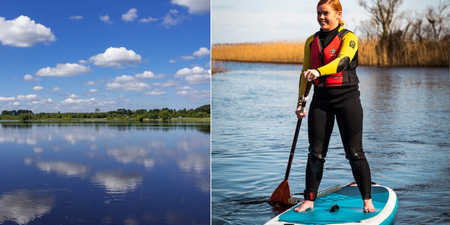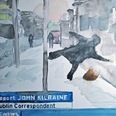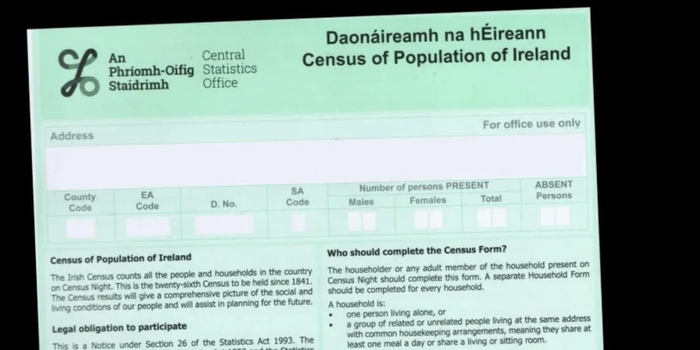Last night as households up and down the country came together to fill in their census, it was difficult to ignore the lack of representation for some on the forms.
One aspect that was particularly distressing for many was the omission of detailed questions on sex and gender – the form only provided options for “male” and “female”.
According to the Central Statistics Office (CSO), those who were uncomfortable with the question could tick both boxes, however, for statistical analysis purposes all would have to be assigned a sex. According to their website, where a sex is not clearly indicated on a Census form it will be assigned at random.
Their website also says that “while there is no question on gender identity in the 2022 census, it is anticipated that it will be included in the next census”.
Still, for there to be no option for non-binary people on a form every household in the country is required to fill out is discouraging to say the least.
Who do we send suggestions to for the Census 2027 form?
• recognise non-binary people
• recognise stay at home parents as carers & what we do as work instead of “Looking after home/family”
• recognise unmarried couples
• recognise freelance work #PublicConsultation #Census— Deirdre McCormack SD 💜 (@MrsDeeMcC) April 3, 2022
Noah Halpin, healthcare officer at the Transgender Equality Network Ireland told the Irish Examiner how the omission has resulted in “having trans, non-binary, and intersex people’s identities essentially erased from census data once again”.
https://twitter.com/AChairdeGael/status/1510753113162014722?s=20&t=0u_q0-fxH3H5mgekWn7S0g
Unmarried couples
Elsewhere on the form, it was noted that there was no option for unmarried people in long term relationships – their only option was to tick the “single” box.
Why isn't there an option for unmarried people in long term relationships? That's a huge amount of the population?#Census2022 pic.twitter.com/LIvhhLh1pF
— Eleanore Hutch (@elehutch) April 3, 2022
Blind and visually impaired people
National Council for the Blind Ireland (NCBI) also noted the need to modernise the way the census data is collected, so people who are blind or visually impaired can fill it out independently.
The CSO provided guides to completing Census 2022 in Braille, Large Print and Audio, however, only the standard paper form is the one accepted. A helpline number was provided to arrange an enumerator to visit to complete the form for anyone who needed assistance.
June Tinsley, Head of Advocacy and Communications for NCBI said
The data contained in Census forms is invaluable in shaping future investment and service provision and will impact the lives of people who are blind or vision impaired. NCBI welcomes the opportunity to work with the Central Statistics Office to ensure future Census forms are available in fully accessible formats. Also moving to an online version should be actively progressed similar to other initiatives that relate to legal documents e.g. passport applications. This would ensure the Census process is more inclusive and would dramatically reduce the environmental impact with less paper being used.
READ NEXT: This sign at Rosses Point absolutely roasts litterers
Topics:
RELATED ARTICLES






MORE FROM Lovin
























MORE FROM Lovin
























